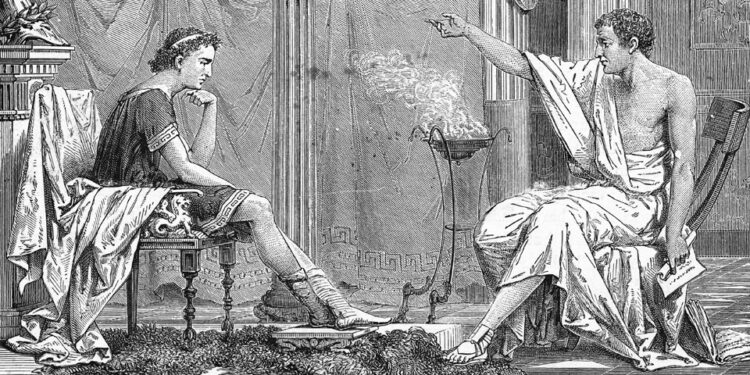Alexander the Great, born in 356 BCE in Pella, Macedonia, was one of the most influential figures in ancient history. Known for his military prowess, strategic brilliance, and ambition, Alexander left an indelible mark on the world during his short but impactful life.
From an early age, Alexander showed exceptional qualities as a leader and warrior. He received a rigorous education from the renowned philosopher Aristotle, who instilled in him a love for learning and a thirst for knowledge. At the age of 20, Alexander ascended to the throne after the assassination of his father, King Philip II of Macedon. Determined to fulfill his father’s dream of conquering Persia and to establish an empire of his own, Alexander embarked on an epic military campaign.
With an army of around 40,000 men, Alexander began his conquest of the Persian Empire. His military strategies were innovative and daring, and he achieved remarkable victories against formidable adversaries, including the Battle of Granicus, the Battle of Issus, and the decisive Battle of Gaugamela. The Persian Empire, once thought invincible, crumbled before Alexander’s relentless advance.
Alexander’s military successes were not limited to Persia. He expanded his empire to encompass Egypt, Mesopotamia, Persia, and parts of India, creating one of the largest empires the world had ever seen. Despite his military might, Alexander sought to foster cultural exchange and amalgamation between the Greek and Persian worlds. He encouraged his soldiers to marry Persian women, and he adopted Persian customs and traditions himself, promoting a sense of unity and cultural understanding.
In addition to his military achievements, Alexander had a profound impact on the spread of Hellenistic culture. He founded numerous cities bearing his name, the most famous being Alexandria in Egypt, which became a vibrant center of commerce, learning, and art. It was during this time that the Greek language, art, philosophy, and sciences flourished, blending with local cultures to form a rich and diverse heritage.
However, Alexander’s ambition and thirst for conquest knew no bounds. As he pushed further east, his troops grew weary, and his empire became difficult to govern. His desire to conquer India was met with fierce resistance, and after years of campaigning, his troops demanded to return home. Tragically, Alexander’s life was cut short when he succumbed to a fever in Babylon in 323 BCE at the age of 32, leaving his empire fragmented and his grand plans unfinished.
Nevertheless, Alexander’s legacy endured long after his death. His military strategies and tactics continued to inspire generations of commanders, and his vision of a unified world influenced future conquerors and empires. His reign marked the beginning of the Hellenistic period, which had a profound impact on art, philosophy, and culture in the centuries that followed.
Alexander the Great’s remarkable achievements, coupled with his legendary charisma and leadership, continue to fascinate and captivate people to this day. He remains a timeless figure, forever etched in history as one of the greatest conquerors and empire builders the world has ever known.
newshub



Recent Comments